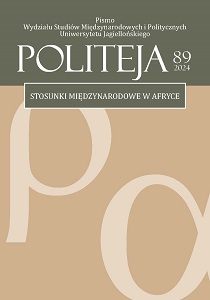Polityka zagraniczna Austrii wobec państw afrykańskich po II wojnie światowej
Austria’s Foreign Policy Towards African Countries after World War II
Author(s): Dariusz PopławskiSubject(s): Politics, International relations/trade, Developing nations, WW II and following years (1940 - 1949), Post-War period (1950 - 1989), EU-Accession / EU-DEvelopment
Published by: KSIĘGARNIA AKADEMICKA Sp. z o.o.
Keywords: Austria; Africa; policy dialogue; development cooperation;
Summary/Abstract: After the restoration of sovereignty in 1955, a neutral Austria developed intensive contacts with developing countries. Vienna’s open attitude towards them fostered a positive image of the country, also within African states. The peak of activity in the political dialogue with Africa came during the so-called Kreisky era. The activist foreign policy was not accompanied by effective development aid though. From the mid-1980s there is an apparent shift away from an active policy of neutrality and global engagement in favour of European politics. After the accession to the European Union, the development cooperation takes priority and the African continent becomes one of three key regions. The cooperation focuses on the poorest priority countries south of the Sahara: Ethiopia, Ghana, Mozambique, Burkina Faso. In spite of programmatic and organisational changes, Austria’s financial contribution still significantly lags behind most small countries of the “old Union”.
Journal: Politeja - Pismo Wydziału Studiów Międzynarodowych i Politycznych Uniwersytetu Jagiellońskiego
- Issue Year: 21/2024
- Issue No: 89/2
- Page Range: 231-246
- Page Count: 16
- Language: Polish

